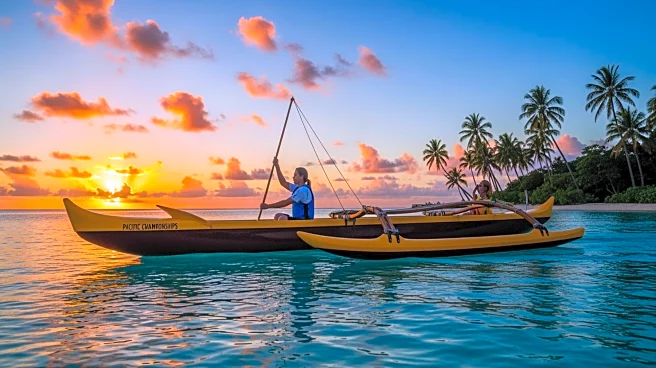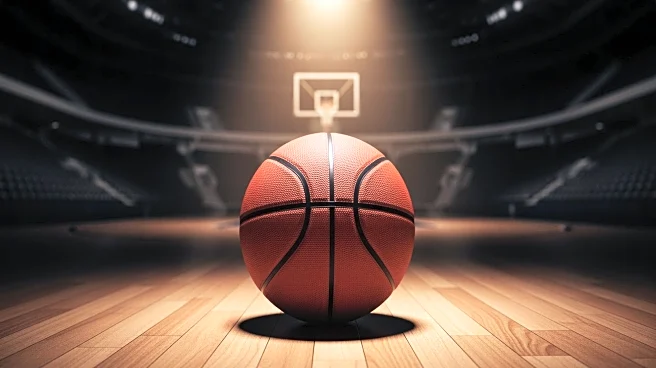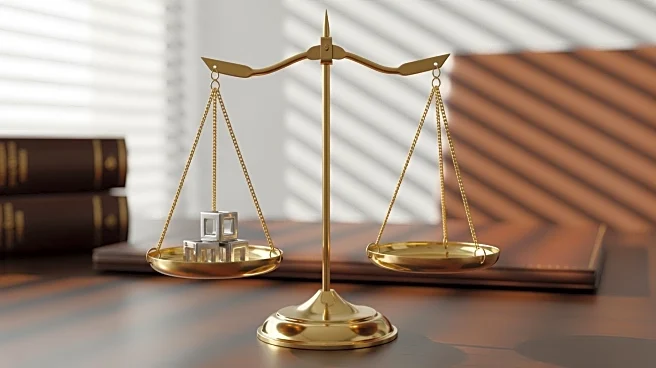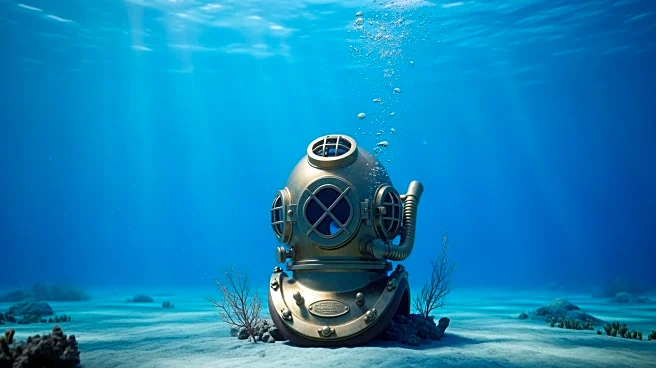What's Happening?
New Zealand secured a decisive victory over Samoa, winning the Pacific Championships with a score of 36-14. The match took place in Sydney, Australia, and marked the end of Kieran Foran's 16-year international career on a high note. Despite trailing 14-6
at halftime, New Zealand dominated the second half, scoring five unanswered tries. This victory denied Samoa their first international trophy, disappointing the pro-Samoan crowd at Parramatta. New Zealand's performance was a strong statement ahead of the upcoming World Cup, showcasing their ability to overcome Pacific rivals Samoa and Tonga.
Why It's Important?
The victory is significant for New Zealand as it reasserts their dominance in the Pacific rugby league, a position that has been challenged by the rise of Samoa and Tonga in recent years. This win boosts New Zealand's confidence and morale as they prepare for the World Cup next year. For Samoa, the loss is a setback in their quest for international recognition and success. The match also highlights the competitive nature of Pacific rugby, with New Zealand's comeback serving as a reminder of their resilience and strategic prowess.
What's Next?
Looking ahead, New Zealand will focus on maintaining their momentum as they prepare for the World Cup. The team will likely analyze their performance to build on their strengths and address any weaknesses. Samoa, on the other hand, will need to regroup and strategize to improve their performance in future tournaments. Both teams will continue to engage in training and development to enhance their skills and competitiveness on the international stage.
Beyond the Headlines
The match underscores the cultural and sporting rivalry between Pacific nations, reflecting broader themes of national pride and identity. The passionate support from fans highlights the importance of rugby in these communities, serving as a unifying force and a source of national pride. The event also raises questions about the development and investment in sports infrastructure and training programs in Pacific countries, which could influence future performances.















